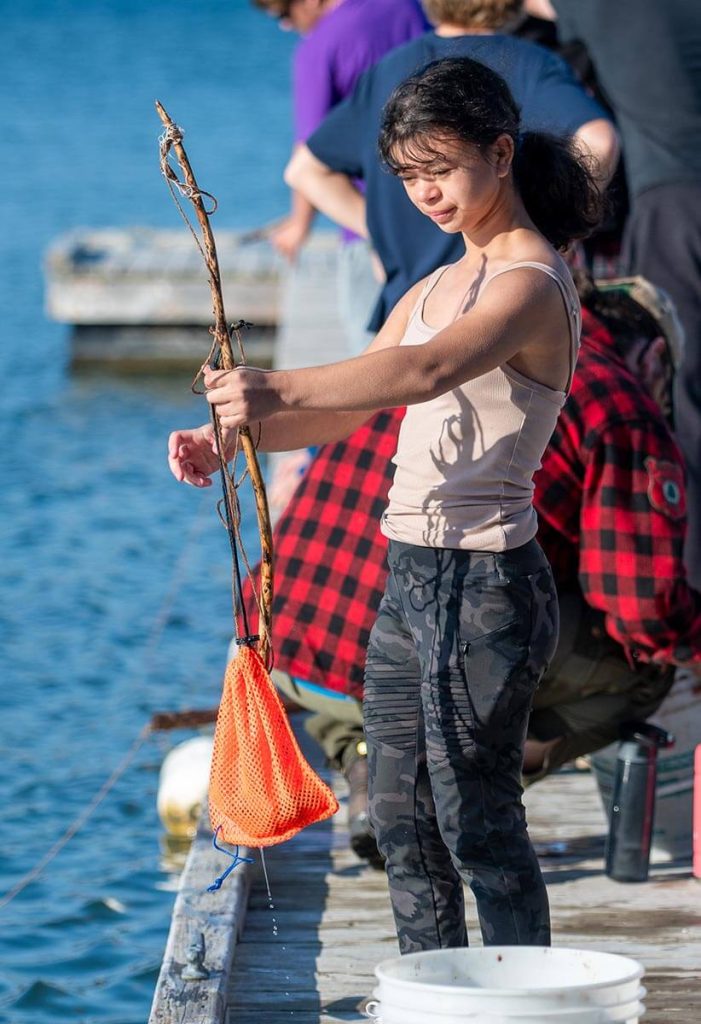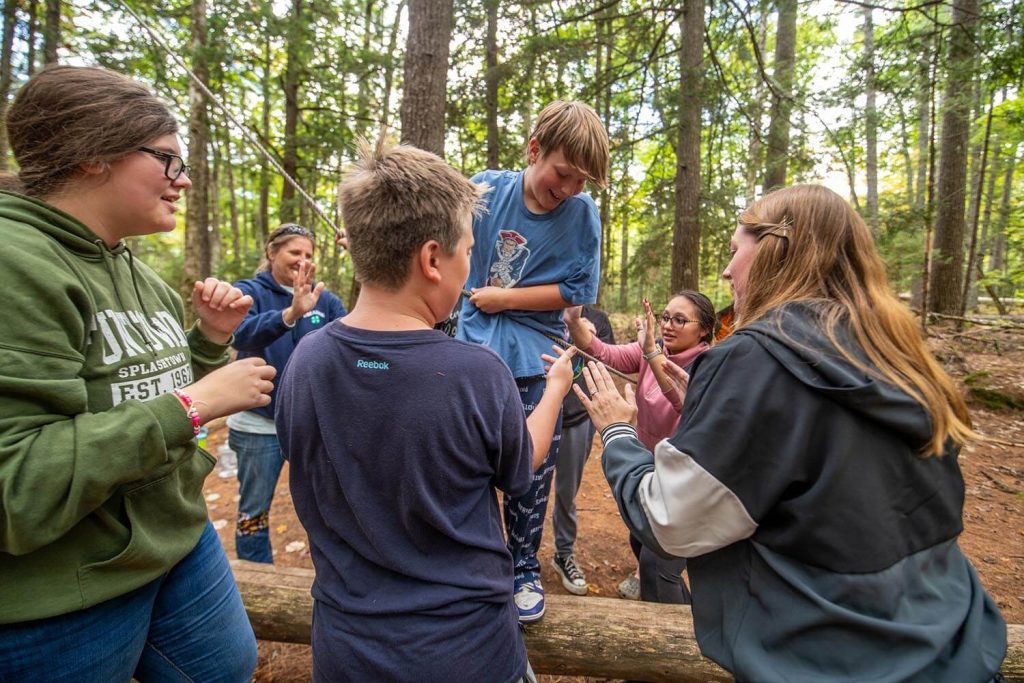
Maine to pilot Outdoor School for All
Thanks to private funding and the passage of bipartisan legislation, thousands more Maine students will benefit from overnight outdoor educational experiences in the 2025-26 school year
Thousands of Maine students will participate in transformative overnight outdoor educational experiences in the coming school year — at no cost to their districts.
Maine Outdoor School for All is launching this fall thanks to $450,000 secured from private foundations, including the Betterment Fund, Horizon Foundation and Quimby Family Foundation, and bipartisan legislation establishing the program sponsored by state Sen. Rick Bennett and signed into law in May by Gov. Janet Mills.
The program will be administered by University of Maine Cooperative Extension, which will make grants to certified outdoor learning centers, enabling them to provide students in grades four through eight immersive, three-day, two-night outdoor educational experiences.
About one-fifth of Maine public school students already participate in overnight programming through the organizations that make up the Maine Outdoor School for All coalition, including UMaine Extension’s 4-H Learning Centers, the Chewonki Foundation, the Ecology School and Schoodic Institute, typically paid for by the sending district or private foundations.
With the establishment of the program in state statute, initial private funding and a campaign to raise an additional $1 million this year, Maine has become one of just four states committed to providing outdoor learning opportunities for all public school students, regardless of the socioeconomic status of their family or their district. Oregon, Washington and Minnesota have Outdoor School for All programs funded by lottery proceeds and appropriations.

At current funding levels, UMaine Extension expects the program will serve 1,000 additional students in 2025-26. When fully funded at $6 million annually, the program will be accessible to all students in grades four through eight in the state. Extension will certify outdoor education programs across the state and issue grant funding for these programs to partner with school administrative units and provide immersive outdoor education.
“There is no better classroom than the Maine outdoors,” said Executive Director of UMaine Extension 4-H Centers Ryder Scott. “Research has reinforced that outdoor learning benefits students’ academic performance and their physical and social-emotional wellbeing. These aren’t just field trips — they are transformational experiences that engage Maine students in exciting STEM learning and prepare them for future success in their studies and careers.”
While at the certified outdoor learning centers, students and their teachers will participate in hands-on discovery aligned with state learning results. The core curriculum will help students develop in-demand STEM, leadership, communication and collaboration skills, while fostering confidence, connection to the state’s outdoor heritage and a commitment to environmental stewardship. This is entirely consistent with the goals and strategies of the recently released 10-Year Maine Outdoor Recreation Economy Roadmap, which proposes expanding pipelines to rewarding careers in the outdoor industry through “increasing access to outdoor experiences” and “integrating outdoor education and career pathways in K-12 curricula.”
“Our outdoor school experiences make a meaningful difference in the academic and social-emotional learning for our students,” said Woodstock Elementary Principal Beth Clarke about her students’ immersive learning at the UMaine 4-H Learning Center in western Maine. “Whether observing the life cycle of plants, understanding ecosystems or learning leadership skills, Outdoor School at Bryant Pond deepens our students’ understanding of the world and helps them grow into successful young adults.
“Extension is thrilled to play a key leadership role in the Outdoor School program,” said UMaine Extension Dean Hannah Carter. “This program will create pathways for students to attend Maine’s public universities and help build a labor force skilled in resource management, conservation, outdoor recreation, agriculture and forestry.”
“Outdoor immersive education allows all its participants the opportunity to grow academically and socially. It allows students to practice healthy risk taking, and it shows them a world beyond cell phones and social media,” said 2025 Maine Teacher of the Year Becky Hallowell, who incorporates outdoor teaching and learning into her fourth grade at Wiscasset Elementary School. “All our Maine students deserve to have this opportunity.”
“Research shows the critical years around middle school are a key window for physical, social and mental health development and the data shows that Maine youth are facing more mental health challenges than ever before. These middle school years are when kids start thinking about possible career pathways and their beliefs about the place they call home,” said Maine Environmental Education Association Executive Director Olivia Griset. “When our youth get to have positive community-based learning experiences they gain a greater sense of place and connection to this state, making it more likely they will want to stay here to pursue careers, contribute to the Maine economy, raise their families, and participate in their local communities.”

“Current funding formulas for public education simply do not allow schools that would most benefit from this type of experience to pay for it out of their normal operating budgets, especially schools in rural, low-income or remote parts of the state. And yet, these very students are often the ones we are depending on to lead our fishing, farming and forest industries in the future, and hope they develop an interest in the sustainable resource management so crucial to Maine’s economy,” said the Chewonki Foundation’s Nancy Kennedy.
“This new Outdoor School program creates a framework for improved access to robust outdoor learning programs for students in our poorer and more rural areas,” said Cobscook Institute Co-Executive Director Shaun Haskins. “Making this a statewide initiative, rather than something that individual schools or school districts must manage to implement on their own, reduces barriers and builds opportunity for all of our youth to reap the benefits of these amazing programs.”
“This is a win for Maine students,” said Ecology School President Drew Dumsch. “We know from decades of experience that outdoor education is a powerful spark that keeps kids engaged in hands-on learning, STEM-related studies and, most importantly, gives them a window into Maine’s distinct landscape and natural heritage — from working forests and tidal estuaries to agriculture, conservation and fisheries. Now we must secure full and ongoing funding so all of our kids can benefit.”
To learn more about supporting Maine Outdoor School, contact Ryder Scott at ryder.scott@maine.edu.
Contact: Melissa Arndt, melissa.arndt@maine.edu
